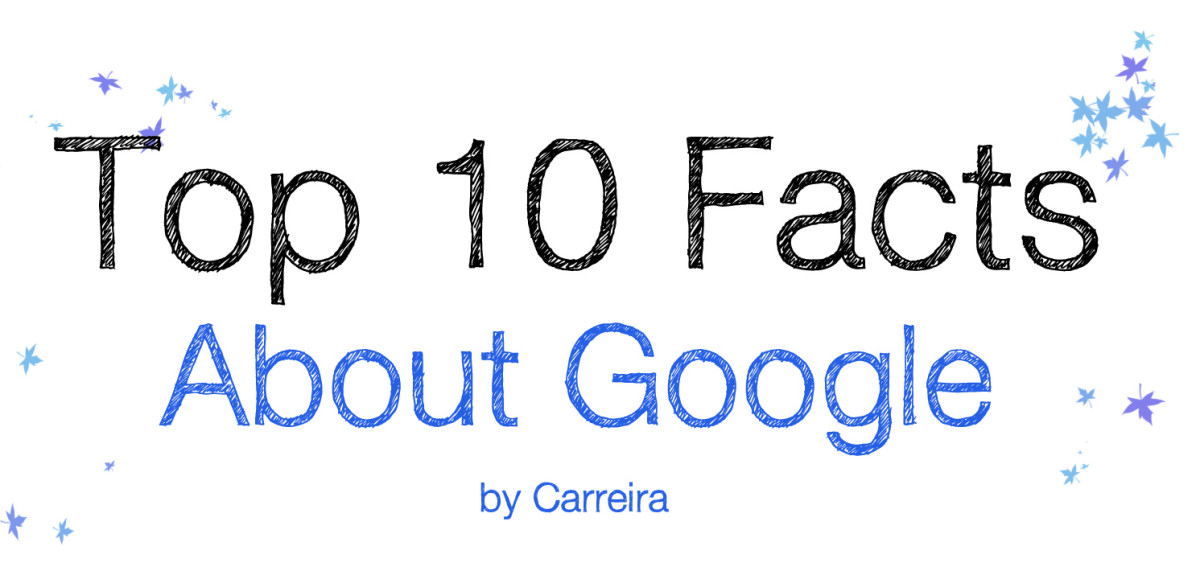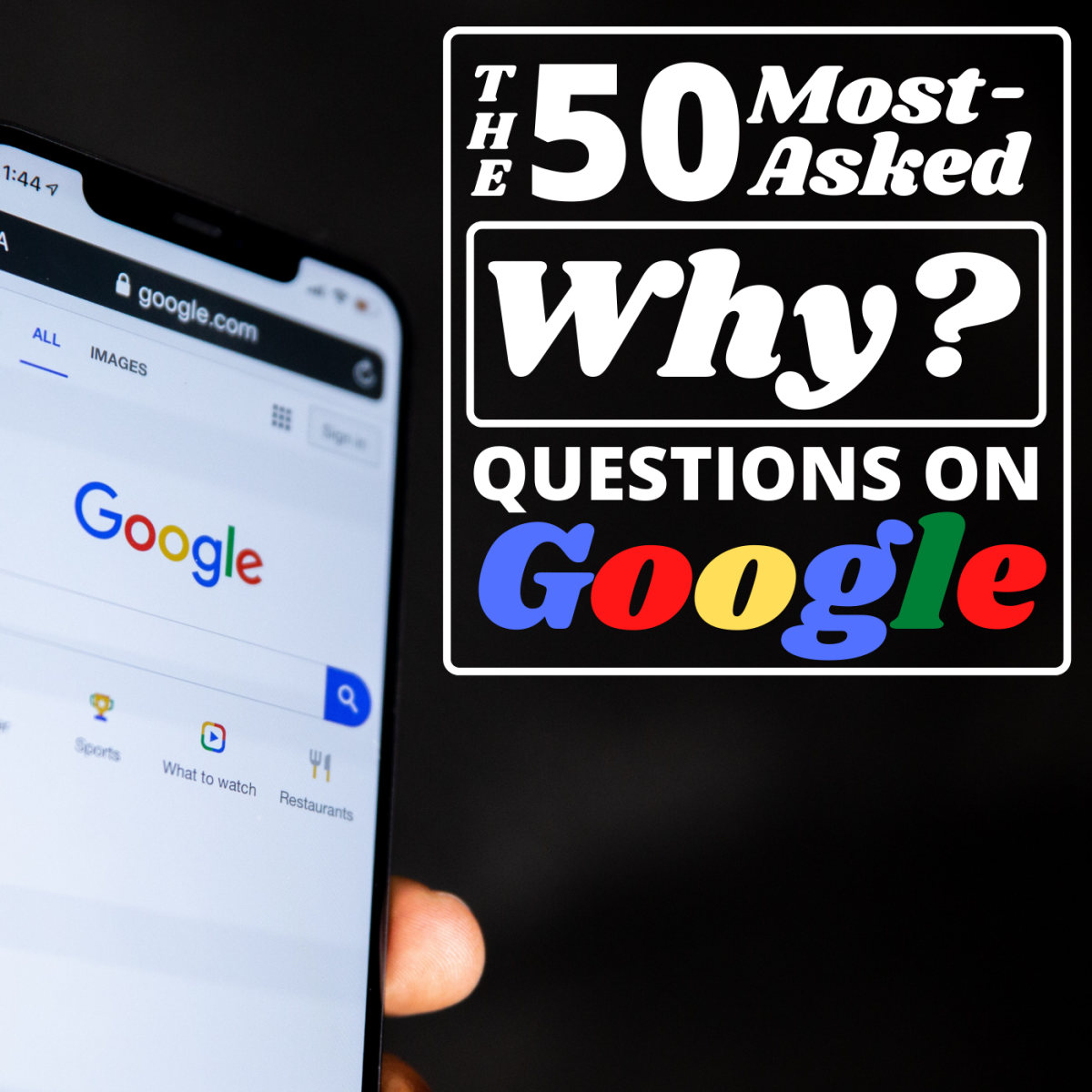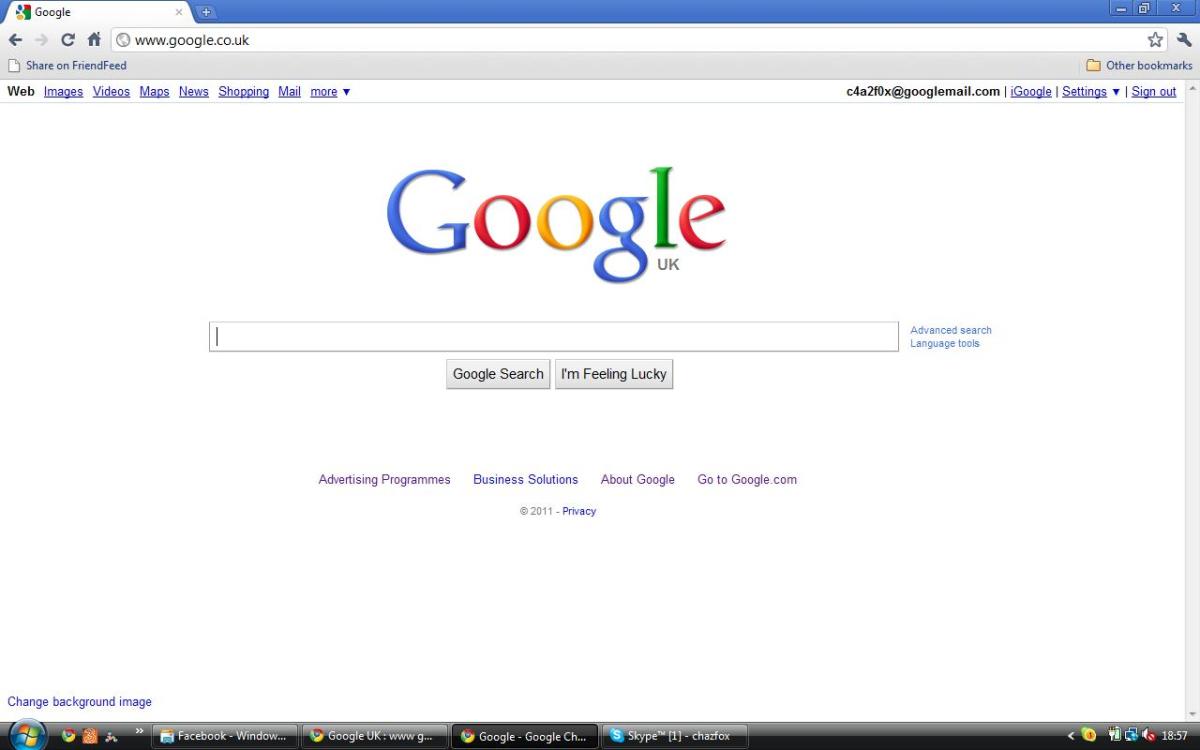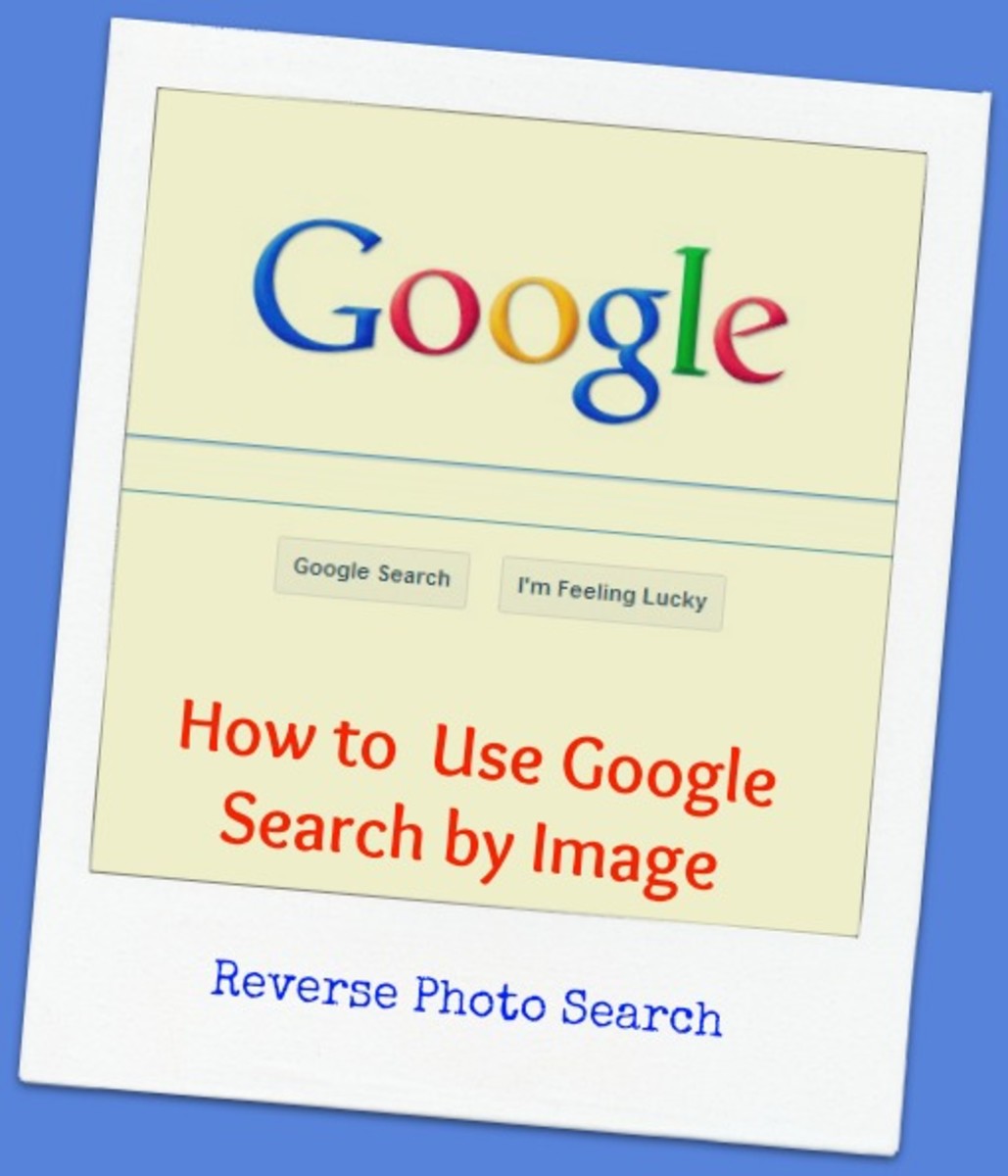- HubPages»
- Technology»
- Internet & the Web»
- Search Engines
Does Google Know What an Image or Picture Is About?

Google's "Search By Image" At Work
Google knows all kinds of things. Things you would never even think they could figure out.
I was reading a discussion about Google, SEO, and images. The main topic is irrelevant for our purposes, but someone asserted in the discussion that Google didn't know what an image was about - therefore Google wouldn't know whether the image was relevant to your content or whether the caption was relevant to your image.
In theory, this would mean that you could upload any image, give it an alt tag to describe it the way you want, attach a caption that you like, and have it be "relevant" to your content. So the argument went, the image, to Google's spider, is nothing more than the text of the "alt" tag.
Well, as it turns out, Google does have an idea what a picture is about. The algorithm isn't foolproof, and Google's knowledge of an image depends a lot on how common it is and how recognizable its subject is.
But, given the fact that we don't live in a science fiction movie, it's still pretty amazing. Let's take a look at how Google's "Search by Image" feature works. We'll use a couple examples.
Searching By Image in Google
First, go to images.google.com, or go to Google and click on "Images" in the navigation bar. This will bring up the Google Image search.
Normally, you might type in a descriptive phrase to look for an image. You may not realize, however, that you can actually use and image as a "search query" of sorts. You simply take an image from your desktop or Windows explorer and drag-and-drop it into the search box.
For a first example, I'll take the image above (of two models, wearing white, hanging out with a lion statue in the park). It's important to note that there is no metadata attached to this image, and it has never been uploaded publicly on the Internet. It's a leftover photo from a shoot I did last summer, and we're not giving Google anything to work with besides the actual image.
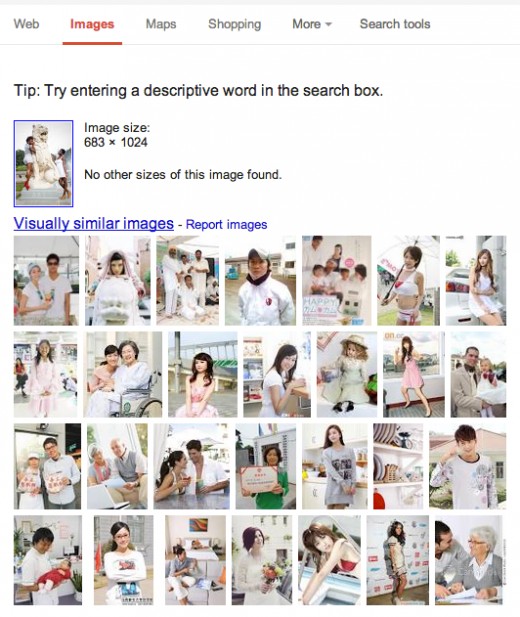
This is what comes up.
At the top, you have the original image. Then you have a section titled, "Visually similar images" and a 4x7 matrix of photo thumbnails.
What's happened is that Google has used an algorithm to match images with similar color profiles to our original picture.
Obviously, there was no exact match because this image doesn't appear in Google's index. Depending on how you define the image, there are some surprising matches, though.
If the image is about people wearing white, then it's spot on. One of the 28 photos doesn't include people (or a person-like doll) and one of the photos has a person wearing a significantly different color. The other 26 photos are all similar, in that they feature people wearing white.
If the image is about cute girls, then it's got about a 50% success rate. About half of the images feature some kind of attractive female who appears to be modeling.
Oddly enough, the only way that this search really fails is that there are zero black girls in the image results. To a human, it's obvious that the models are black. To a computer algorithm, I can see how this would be confusing because the models are so small and their skin color is such a small portion of the image's color profile.
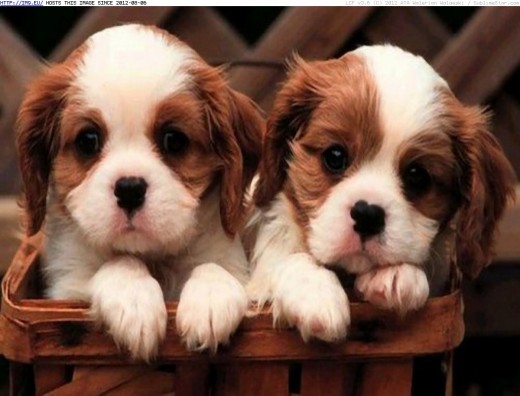
What Happens With a More Common Photo?
Ok, that's kind of cool. Amazing, maybe, but it still doesn't prove that Google knows what the image is about. It's done some cool algorithmic magic, but it hasn't "defined" the image.
What happens if we search for a different image that is in Google's index? Let's try searching again with the image to the top of a pair of cute puppies. I found this in Google images myself by searching for "puppies" or something similar.
I then downloaded the image and inserted it into the search query the same way I did with my own photo the first time.
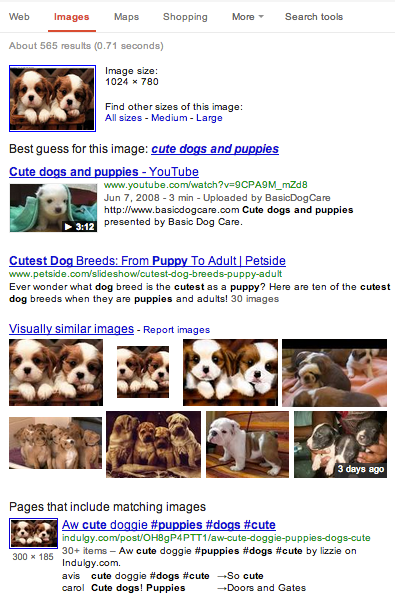
Well that's different. Now, we have a whole new kind of search results.
First, notice that underneath the image, Google tells us what it thinks the image is about. And damn it if they aren't right!
Google's "Best Guess" for this image is: cute dogs and puppies. I'd say that's a pretty good description.
Below that, you have a YouTube search result for "cute dogs and puppies" and a related website.
Then, you've got a selection of 8 similar photos. Three of them look like the same picture, perhaps cropped differently. The other 5 are clearly pictures of cute dogs and puppies. They're all extremely relevant to the original picture.
And at the bottom, there is a list of pages that include the same exact photo. Because Google knows everything, and it can match two photos together.
So... Does Google Know What Images Are About?
Google's algorithm may not be perfect. But Google is definitely working on understanding images the way humans do.
The image algorithm all by itself can find images that look similar. But, these may not be the exact same subject and Google will have trouble nailing down the topic.
However, if you feed it an image that is in it's database, it can definitely figure out what the image is about. Most likely, it uses it's giant web index to compare the "alt" tag and contextual text around the images on different pages. This can often yield a perfect description of the photo.
This doesn't mean that irrelevant images are good or bad for SEO. I couldn't tell you that without any certainty.
All I can tell you is that Google is quickly learning what images are about. Cause, well, Google knows everything. Or it will in a few more years.

